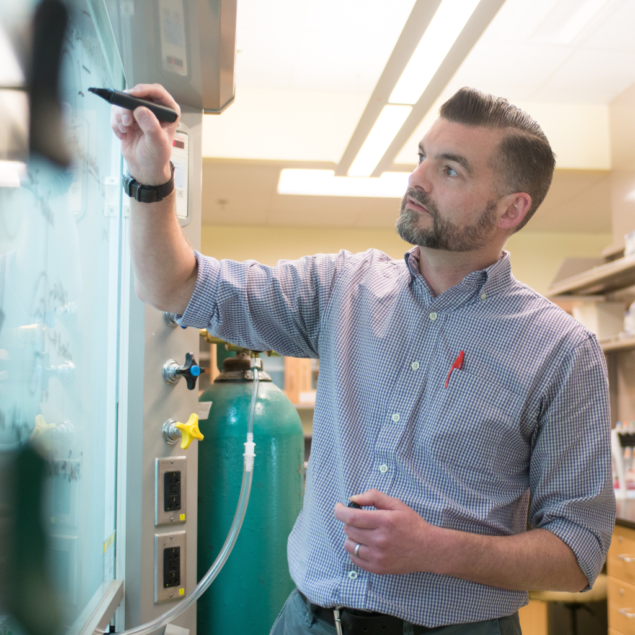The frequent exposure to chemicals in the environment and diet leads to the chemical modification of DNA, resulting in the addition of two or more distinct molecules—or adducts— to DNA. Some DNA adducts can induce mutations during cell division, and when occurring in critical regions of the genome, lead to disease, including cancer. A team of researchers are developing and curating a comprehensive international database of DNA adduct standards.
Marcus S. Cooke, professor in the Department of Environmental Health Sciences at the Robert Stempel College of Public Health & Social Work, is a co-investigator on the study that holds a $164,000 grant from National Institute of Environmental Health Sciences (NIEHS)—in partnership with Anthony P. DeCaprio of the Department of Chemistry & Biochemistry in FIU’s College of Arts, Sciences & Education and researchers Jingshu Guo, Peter Villalta, Scott Walmsley and Robert Turesky from the University of Minnesota.
“The study of DNA adduct detects both expected and unexpected adducts, and some of those unexpected ones might also be unidentified. Having a database will accelerate the identification of these unexpected adducts,” said Cooke.
The targeted analysis of DNA adducts over the past 30 years has revealed that the human genome contains a wide array of DNA adducts, many of which are attributed to life-style factors, such as smoking, eating well-done cooked meats, or through oxidative stress. With the advancement of high-resolution mass spectrometry instrumentation and new scanning technologies, untargeted approaches have become available to simultaneously screen for multiple DNA adducts in a single assay. However, the development of this emerging field of DNA adductomics is hindered by the lack of a publicly available mass spectral database for DNA adduct identification and characterization.
‘With a database that is freely available and searchable by the public, researchers can quickly identify adduct patterns, which will be very important when using DNA adductomics for assessing human exposures, or identifying cancer causing agents,” said Cooke. “The successful establishment of a validated DNA adduct mass spectral database in a searchable, reference library is critical for the comprehensive analysis of DNA adductome profiles from cellular DNA, urine, and other biological matrices. This database will facilitate the use of DNA adductomics in human cohort studies and advance our understanding of the relationships between external and internal exposures and disease risk.”
This is Cooke’s fourth, currently active NIEHS grant.






